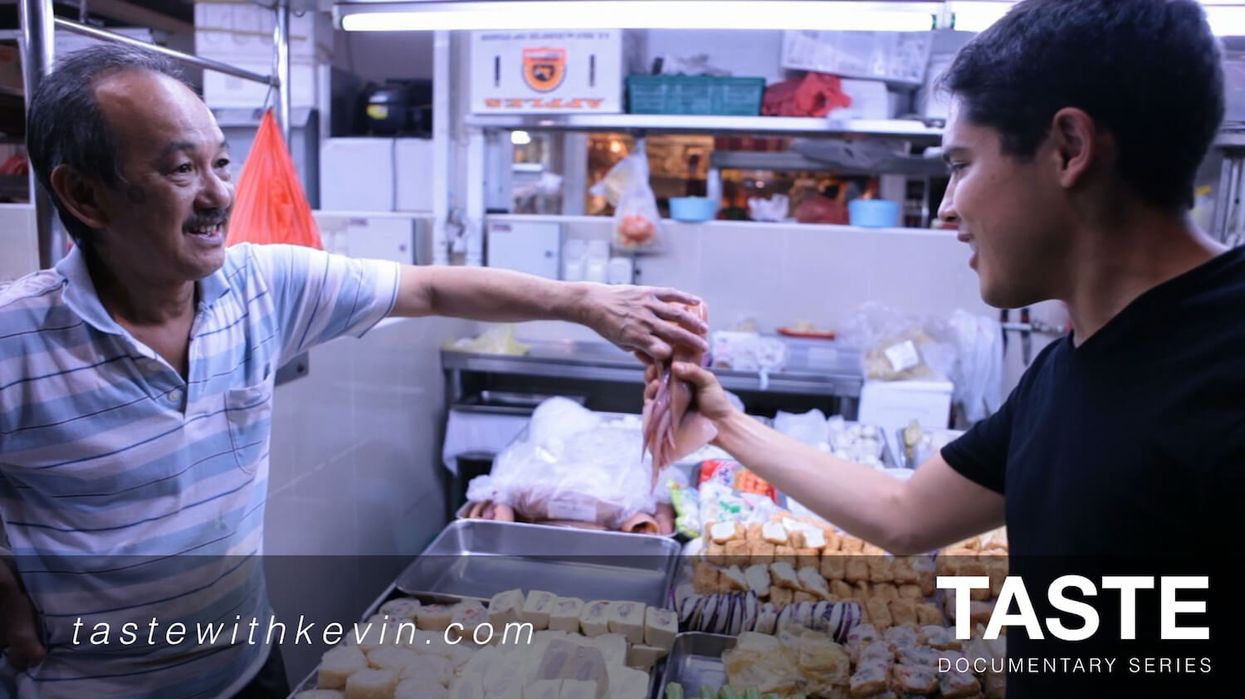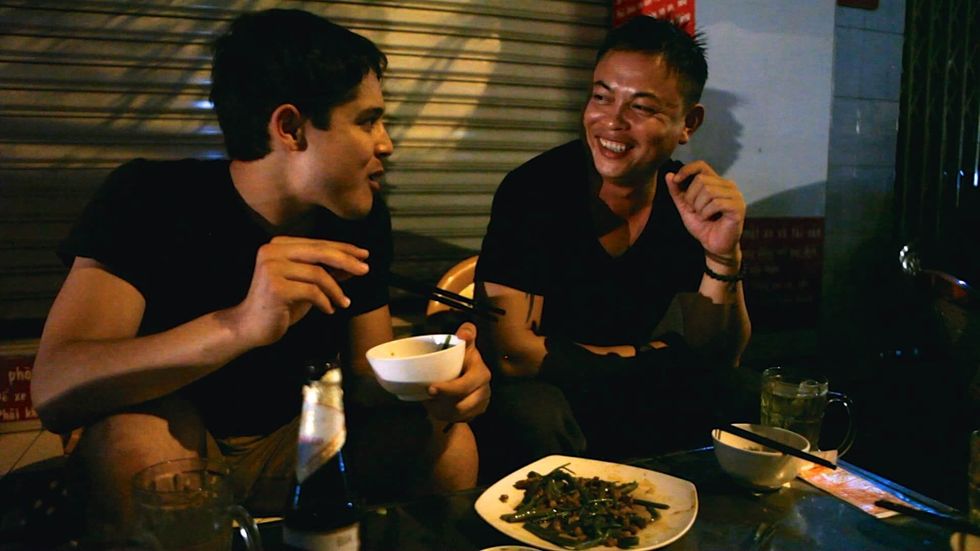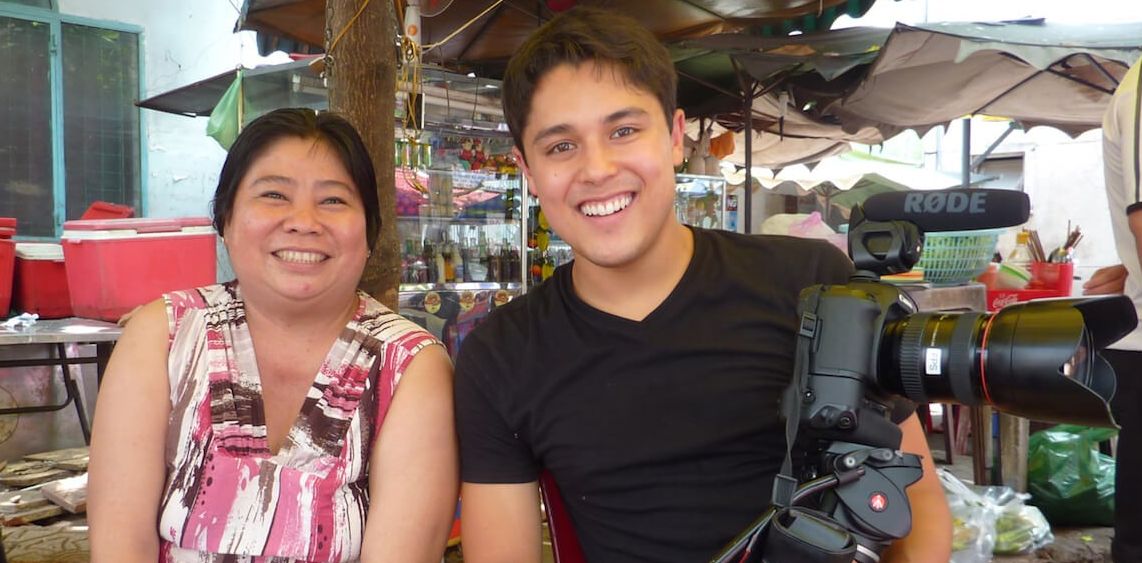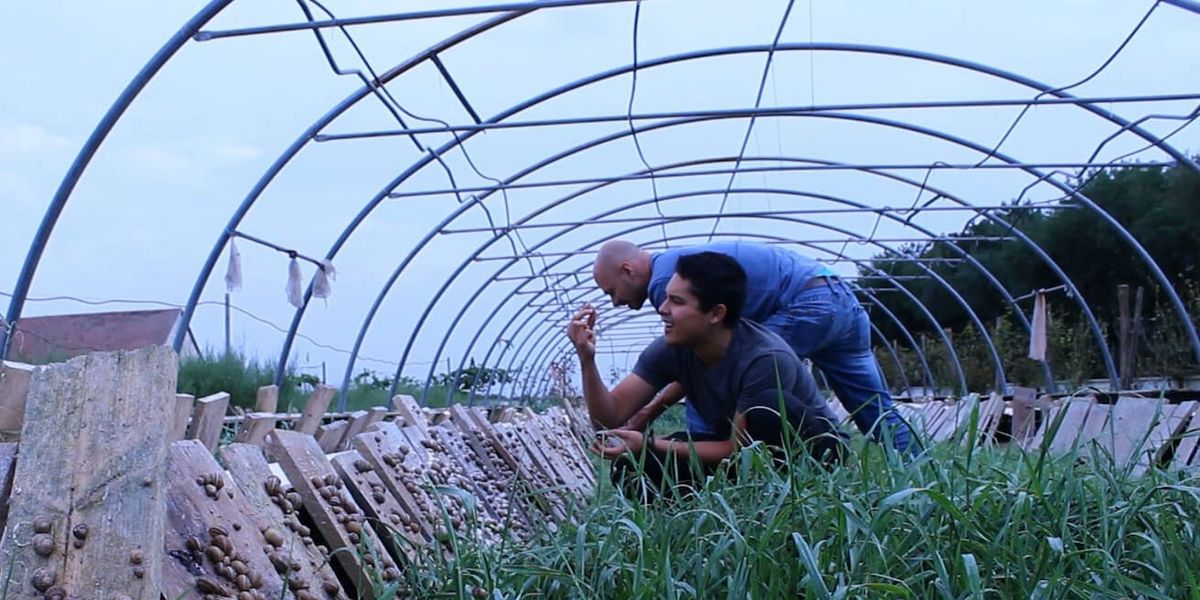How To Create a Docuseries as a One-Man Film Crew
You don't need all the fancy gear and crew to make a great docuseries.

'TASTE'
This post was written by Dhruv Anish.
A baker who uses Hebrew-inspired cake designs to fight anti-Semitism in Budapest. An IBM consultant turned snail farmer in Vienna. An ex-con who ditched crime to pursue culinary excellence in San Francisco.
Documentary filmmaker Kevin Longa looks to uncover the untold stories of unique people who make food from around the world to spread the message of uniting the globe through food. Using little more than a DSLR and a lavalier microphone, Longa traveled around the world, filming 70 episodes across 21 different countries as a part of his documentary series, TASTE.
Longa’s love for filmmaking began as a child growing up in California, using his family’s Sony camcorder to record rudimentary short films that he believes laid the foundation for the guerrilla style he utilized while creating TASTE. After graduating from UCLA in 2013, Longa traveled to Southeast Asia with a classmate, documenting the journey with his friend’s Canon EOS 5D. He was instantly captivated by the array of intriguing delicacies in each country, using his camera to capture fascinating dishes such as edible tree starch in Brunei and fried tarantula in Cambodia.

As he started spending time in kitchens interviewing the culinarians behind these delectable dishes, Longa discovered that the stories of the chefs beyond the plate were much more interesting than the plates themselves. He began his documentary journey, interviewing everyone from street vendors to high-end restaurateurs, exploring food’s rich cultural significance.
Then, Longa took to Europe, conversing with noteworthy culinarians like Zdeněk Pohlreich, the “Czech Gordon Ramsay,” and Jacob Loop, the self-proclaimed “food hooker” of Copenhagen.
Filming, editing, and distributing a food series is no easy task. Coupled with the fact that Longa was operating on a small budget meant that he had to do everything single-handedly, making him a lean one-man film team. This decision created obstacles for Longa every step of the way.

From production-related hassles, including receiving a renewed passport from a man on a motorcycle in Hồ Chi Minh City just minutes before a flight, to being mugged for his camera in a river near Auschwitz to logistical hurdles like translating and transcribing hundreds of hours worth of footage in a breadth of different languages to tirelessly promoting a Kickstarter campaign to fund production for the project, Longa found that his low-end setup had its share of advantages in the chaos of filmmaking.
For one, the interviewees were much more relaxed with his simple DSLR and microphone than they would have been in front of the extravagant camera and crew Longa had initially envisioned for the project—and had usually worked with while at UCLA. Additionally, a one-man team meant more flexibility in terms of transporting gear and equipment across continents.

While the road ahead is uncertain, Longa is committed to telling the stories of food—the medium he says is a gateway into human history, a form of edible anthropology—and the unsung heroes who use it to contribute to our global identity.
Although he still manages a one-man team, Longa is looking for similarly-intrepid, innovative creatives to join the TASTE team and explore the transcendental power of food together. He has relocated to NYC and is currently seeking an entrepreneurial business development teammate who will help establish the commercial film production side of TASTE.
This post was written by Dhruv Anish.











